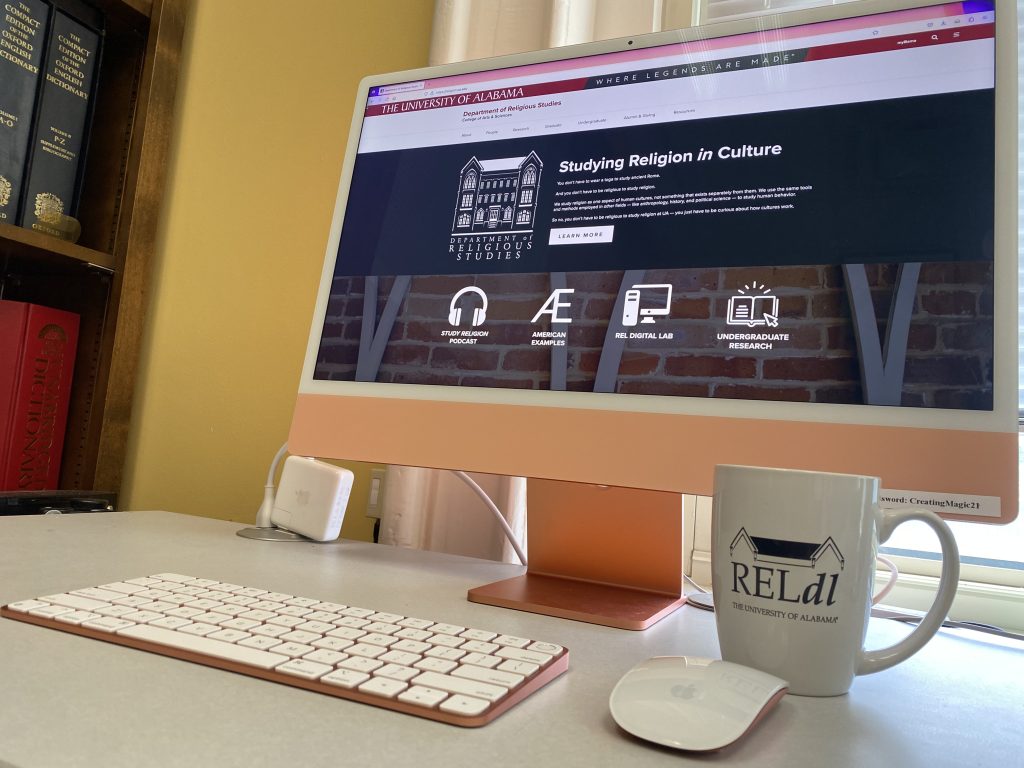
Prof. Loewen wonders what religion scholars might learn about “being critical” from philosophers of religion. […]

Prof. Loewen wonders what religion scholars might learn about “being critical” from philosophers of religion. […]

REL MA student Trevor Linn observed the 2023 American Examples public humanities workshop. Here’s what he found! […]
Read More from “Making the thing is the thing”: Observing the 2023 American Examples Cohort
Understanding the various systems that organize the world is one outcome of a major inReligious Studies. Though it was not his first expectation, that is exactly what Justin Nelson (RELmajor who graduated in 2007) credits for contributing to various successes he has experienced.Last month, Justin returned to campus for Grad Tales, a department event that features alumnisharing with students their journey from graduation to wherever they are now. It is anencouraging event to attend during undergrad as most, if not […]

Casey A’Hearn is an REL MA student who uses Louis Althusser’s theory of ideology to understand Joseph Smith Jr.’s First Vision.
[…]
Read More from Seeing Joseph Smith Jr.’s First Vision as an Ideology

The Department of Religious Studies at the University of Alabama, Tuscaloosa, invites applications for a tenure-track position at the rank of assistant professor in the area of Social Theory and Digital Studies of Religion, beginning August 2024. The area of specialization (historic period, region, or group studied) is open; however, the successful candidate must complement and enhance the current specialties of the Department by using social theory to understand religion as an element of culture. The specific research area is […]
Read More from We’re hiring: Assistant Professor in Social Theory and Digital Studies of Religion

by Marguerite Mayhall*, Kean University. The carved relief lintel showing Lady Xok performing a bloodletting ritual for her husband Shield Jaguar’s accession to the throne of the Maya site of Yaxchilan is a startling image (top left image, Lintel 24). Xok, dressed in an elaborate huipil, or woven dress, kneels while she draws a barbed rope through her tongue and piles it in a bowl in front of her. Her husband, the king-to-be, stands over her, holding a torch and […]
We are glad to have students returning to classes this week after a busy summer for everyone. We have a new department chair and an exciting group of incoming MA students. Check out our Welcome Back video to see some of the changes that we have made to get ready for Fall 2023. We have had a productive summer beyond those changes. As a faculty, we have finished 6 books, more than 20 book chapters, 4 journal articles, and international […]

by Madeline Brodbeck, who is a junior majoring in Religious Studies and Political Science. While participating in an icebreaker last semester, we were asked to share our major with a small group of classmates. When it came to be my turn, I informed the group that I was double majoring in political science and religious studies. My classmates were very interested to learn more about my religious studies major. One classmate responded, “You don’t look like a religious studies major.” […]
Read More from What do you mean, “I don’t look like a religious studies major”?

By Daniel Levine. Anyone who’s taken REL 371 with me over the past three years – or has taken my Israel-Palestine course – will recall a persistent interest in fear: what it does to us, and the various means by which it is channeled to political ends. Some of this work appeared in print for the first time last summer. One aspect of such ‘channeling’ comprises the use of ‘private languages’ to mark off particular fearful experiences: by soldiers and […]

Kadence D. Jackson is a freshman majoring in Political Science and Religious Studies, along with a minor in Judaic Studies. “Evil, animals…,” “Devils, monsters, equivalent to Satan himself…”—these are expressions commonly used when we reference those who belonged to the National Socialist German Workers’ (Nazi) Party during the Second World War. This language is usually voiced casually, perhaps as a means of rationalization; but ironically, I believe it’s actually disassociating Nazis from mankind. […]
Read More from Humans and Nazis: Reevaluating the Conversation of Us and Them